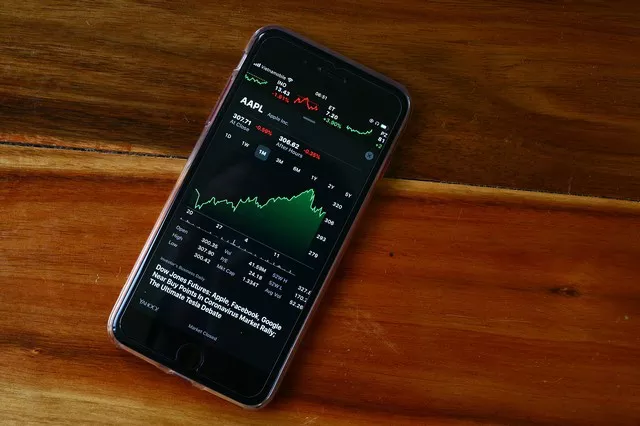Futures exchanges play a crucial role in global finance, facilitating the trading of standardized contracts for future delivery of commodities, financial instruments, and other assets. This article delves into the world of futures exchanges, examining their importance, the major players, and how they contribute to global financial markets.
Understanding Futures Exchanges
Futures exchanges are organized marketplaces where traders can buy and sell futures contracts. These contracts obligate the buyer to purchase and the seller to deliver a specified quantity of a commodity or financial instrument at a predetermined price on a future date. Key features of futures exchanges include:
Standardization: Futures contracts traded on exchanges are standardized in terms of quantity, quality, delivery date, and location.
Clearinghouses: Transactions on futures exchanges are cleared through clearinghouses, which act as intermediaries to guarantee the performance of contracts.
Market Regulation: Exchanges enforce rules and regulations to ensure fair trading practices and market integrity.
Price Discovery: Futures exchanges provide transparent price discovery mechanisms, reflecting market supply and demand dynamics.
Importance of Futures Exchanges
Futures exchanges serve several essential functions in global financial markets:
Risk Management: Hedgers use futures contracts to mitigate price risk associated with fluctuations in commodity prices, interest rates, currencies, and other assets.
Price Discovery: Futures prices provide valuable information about market expectations and sentiment, influencing spot market prices and investment decisions.
Liquidity: Exchanges enhance market liquidity by providing a centralized venue for trading futures contracts, facilitating price efficiency and transaction execution.
Investment Opportunities: Speculators and investors use futures contracts to capitalize on anticipated price movements and diversify investment portfolios.
Major Futures Exchanges Worldwide
The landscape of futures exchanges is diverse, with exchanges operating in various regions and specializing in different asset classes. Here are some of the major futures exchanges around the world:
1. Chicago Mercantile Exchange (CME Group) Based in the United States, CME Group operates the largest derivatives exchange globally, offering futures and options contracts on commodities, interest rates, equity indexes, and foreign exchange.
2. Intercontinental Exchange (ICE) ICE, headquartered in the United States, operates global futures exchanges specializing in energy, agricultural commodities, equity indexes, and interest rates.
3. Eurex Exchange Based in Germany, Eurex is one of the leading derivatives exchanges globally, offering futures and options contracts on European equity indexes, interest rates, and equity derivatives.
4. Tokyo Commodity Exchange (TOCOM) TOCOM is Japan’s largest commodity futures exchange, trading futures contracts on precious metals, energy commodities, and agricultural products.
5. Hong Kong Exchanges and Clearing (HKEX) HKEX operates futures and options markets in Hong Kong, offering contracts on equity indexes, interest rates, and commodities.
6. London Metal Exchange (LME) LME, based in the United Kingdom, specializes in futures and options contracts on base metals such as copper, aluminum, and zinc.
7. Singapore Exchange (SGX) SGX operates futures and options markets in Singapore, including contracts on equity indexes, commodities, and foreign exchange.
8. BM&FBOVESPA Based in Brazil, BM&FBOVESPA is the major futures and options exchange in Latin America, offering contracts on commodities, equity indexes, and interest rates.
9. Moscow Exchange (MOEX) MOEX is Russia’s largest exchange, trading futures and options contracts on Russian equity indexes, interest rates, and commodities.
10. Dalian Commodity Exchange (DCE) DCE, located in China, specializes in futures contracts on agricultural commodities such as corn, soybeans, and palm oil.
Regional Futures Exchanges
In addition to these global exchanges, many countries have regional futures exchanges that cater to local markets and specific asset classes. These regional exchanges contribute to the diversity and accessibility of futures trading globally.
Factors Influencing Futures Exchange Growth
The growth and development of futures exchanges are influenced by several factors:
Regulatory Environment: Regulatory frameworks affect exchange operations, market access, and investor confidence.
Technological Advancements: Advances in trading technologies enhance market efficiency, reduce transaction costs, and increase trading volumes.
Globalization: Increased cross-border trading and market integration expand the reach and liquidity of futures exchanges.
Economic Conditions: Macroeconomic factors, such as interest rates, inflation rates, and geopolitical events, impact trading volumes and market sentiment.
See Also: Which is Better for Beginners: Futures or Options?
Challenges Facing Futures Exchanges
Despite their importance, futures exchanges face several challenges:
Regulatory Compliance: Adapting to evolving regulatory requirements and compliance standards across different jurisdictions.
Market Volatility: Managing risks associated with market volatility and price fluctuations in commodity and financial markets.
Technological Risks: Addressing cybersecurity threats and maintaining resilient trading infrastructure.
Competition: Competing with alternative trading platforms and new financial products that offer similar hedging and investment opportunities.
Future Trends in Futures Exchanges
Looking ahead, futures exchanges are likely to witness several trends:
Expansion of Product Offerings: Introducing new futures contracts on emerging asset classes and niche markets.
Integration of Technology: Adopting blockchain technology and artificial intelligence to enhance trading efficiency and transparency.
Global Market Access: Increasing international collaboration and connectivity to attract global investors and enhance market liquidity.
Sustainability Initiatives: Launching futures contracts focused on sustainable commodities and environmental, social, and governance (ESG) criteria.
Conclusion
Futures exchanges are integral to global financial markets, providing essential hedging, price discovery, and investment opportunities across a wide range of asset classes. From the Chicago Mercantile Exchange to regional exchanges in Asia and Latin America, these marketplaces facilitate efficient trading of futures contracts worldwide. Understanding the role, significance, and challenges of futures exchanges is essential for market participants, regulators, and policymakers navigating the complexities of modern finance. As these exchanges evolve with technological advancements and global market dynamics, they continue to play a pivotal role in shaping the future of finance and risk management on a global scale.


